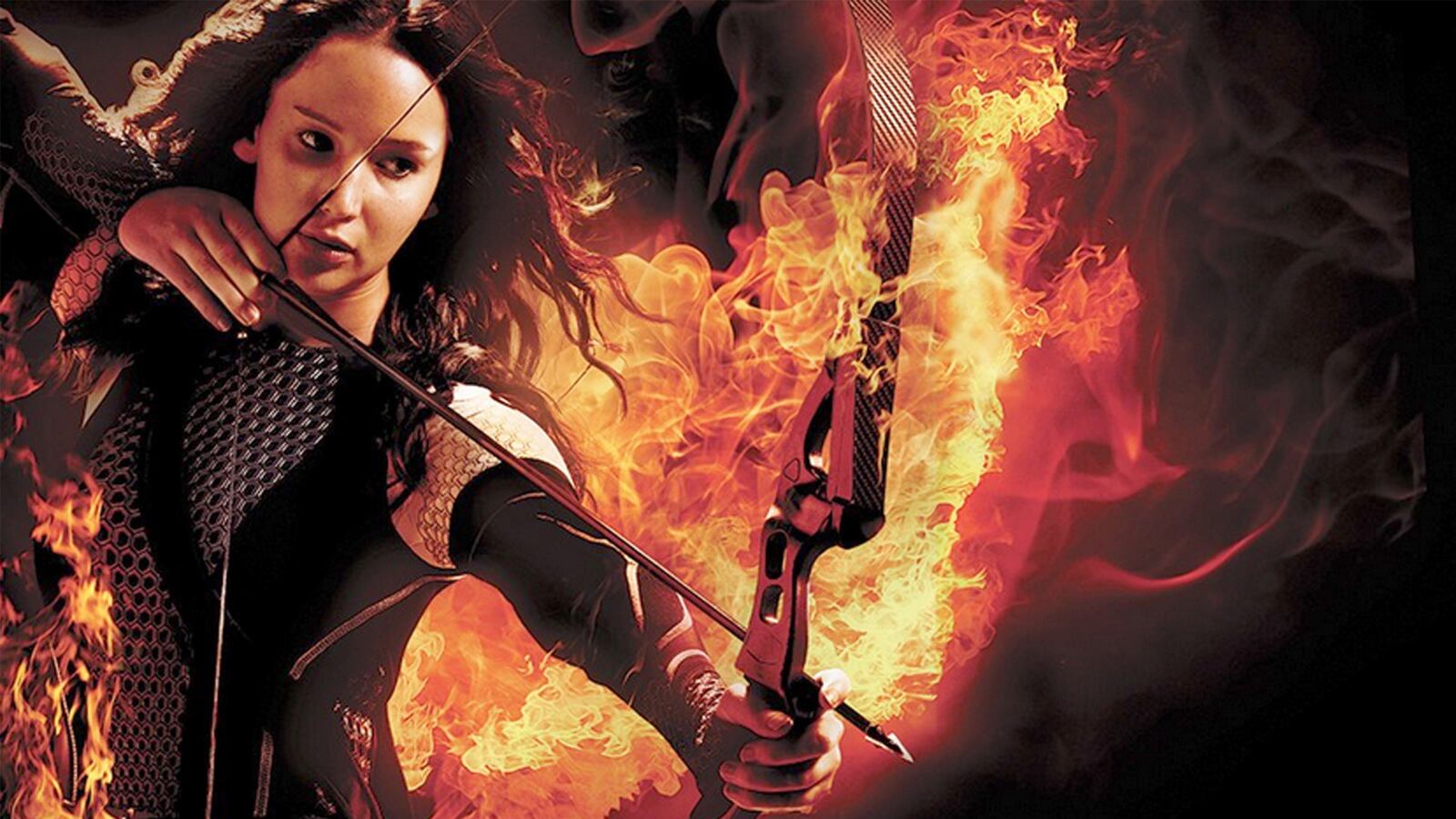If you want to be in the blockbuster novel business, a thriller set in some dark future where a young female protagonist has to save the world is the way to go. The popularity of The Hunger Games and Divergent series have proven that our appetite for young-adult dystopian fiction is almost insatiable. The phenomenon has even provoked arguments as to whether or not it’s appropriate for adults to be reading novels written for teens.
But a new book by author Sandra Newman solves this problem. The Country of Ice Cream Star is a vision of the future that pulls no punches—it is hell with a big beating heart. The book revolves around a “Nighted States” 80 years from now in which African-American children are the sole survivors and are plagued by a mysterious illness that kills them by the age of 20. But it isn’t written for that same age group. Newman’s world is much darker, much more complex, and much more adult.

The first sign that The Country of Ice Cream Star is not your typical teen thriller comes in the very first paragraph. “My name be Ice Cream Fifteen Star. My brother be Driver Eighteen Star, and my ghost brother Mo-Jacques Five Star, dead when I myself was only six years old. Still my heart is rain for him, my brother dead of posies little.”
In the tradition of A Clockwork Orange and Ridley Walker, Newman has invented a fresh language with which she crafts the new world of her 600-plus-page tale. While a somewhat daunting revelation on page one, the language quickly becomes as enthralling as the plot line, developing its own lyrical rhythms and delightful moments of discovery. This wasn’t always Newman’s intention, she said in a recent interview with The Daily Beast. When thinking about her characters’ dialogue, she couldn’t get over the feeling that they certainly would not speak the same language we do today. She started researching African-American vernacular English and immediately thought, “That’s great, that’s beautiful, that’s fantastic.”
Newman eventually developed the resulting language that insinuates itself into readers’ heads, with its descriptions like this of walking through the woods in the evening: “Ya, is always breathlessness in dusking woods somehow. Is everything insane and starry fine.”
“Eventually, about halfway through the book, I developed a thesaurus that I would look at,” Newman says. “Like any thesaurus, you would look at it, and it would almost never have the word I wanted.”
It was a big chance for the onetime professional gambler to take, and it had early repercussions. Newman’s original publisher dropped the book after she refused to rewrite it in “normal English,” and surely not every reader will appreciate her inventiveness while also trying to orient themselves in an already confusing, unknown world. But for those who do, it is hugely rewarding.
Fifteen-year-old Ice Cream Star’s world is not for the faint of heart. After learning that an invading roo (Russian soldier) is the unheard-of age of 30, she sets out to find a cure for the disease that is now threatening the life of her older brother. Newman, who considers herself “very political,” has developed six societies that populate the surviving Nighted States. Each has a different set of values and beliefs under which it operates, ranging from warfare to religion to technology to community.
There is something about the innocence and vulnerability of children and how they interpret—and sometimes pervert—adult concerns like power, religion, and motherhood that is both gripping and disturbing. In this future world, the bands of kids (who refer to each other as “children”) have inherited a semblance of the social structures that governed the world of their long-dead forebears. But in their young hands, concepts like war are both innocent and more disturbing. While “war” between Ice Cream’s Sengles and their sworn enemies, the Nat Mass Armies, is more of a “ritual fight like the one you’d have between two schools in the ’30s in New York,” according to Newman, the violent, male-dominated Nat Mass Armies also keep a tent full of girls as sex slaves. Similarly, religion is both something that Christian societies like the Ciudad de las Marias cling to in this hellish world, and one they use to subdue and control their own people. Their god, Jesus, takes the human form of a captured roo, their biggest enemy, who they then ritually kill in a holy sacrament.
“I think some of [the political themes] feel topical at certain moments of the novel,” Newman says, “but most of them are more general, like considerations of how power functions in different kinds of society, how you gain power, and, of course, the nature of war.”
Newman acknowledges that “maybe there was a little too much complexity” in the world she created, but she says, “I kind of like the complexity because it felt real. It felt like this is what would really happen.”
Yes, The Country of Ice Cream Star follows a formula similar to many of the other dystopian novels that we’re now all too familiar with—a quest (although Ice Cream’s is a Gilgamesh tale—“she’s coming out to defeat death”—rather than one of self-discovery, which Newman finds “uninteresting”), a world in catastrophe, star-crossed love, even a sequel that’s in the works. But by sticking to the broad outlines of the genre while at the same time writing for a more mature audience, Newman is able to explore the implications of our own vices in a way that’s both highly entertaining and thought-provoking. Out of the mouths of babes come some disconcerting truths about our society’s own failings.
“It’s like we’re all asleep. We grow up, we fall asleep, and then the horrors that scared us before—we’re doing them. We’re the monsters in the nightmare,” reflects one of Ice Cream’s allies.
The Country of Ice Cream Star is fresh, dark, and wholly unpredictable at every turn. Let the film rights’ bidding war begin.






